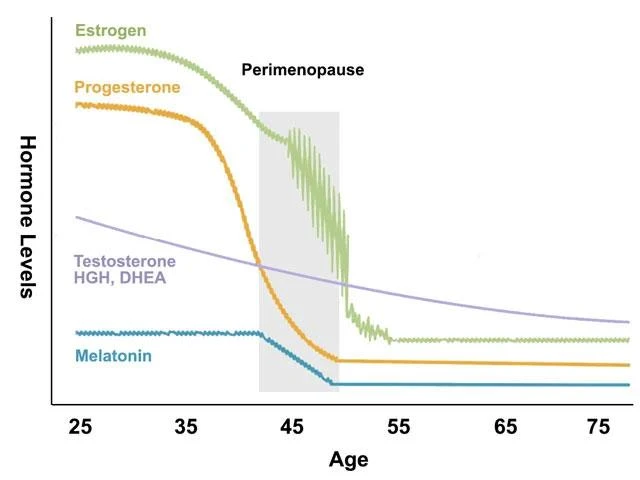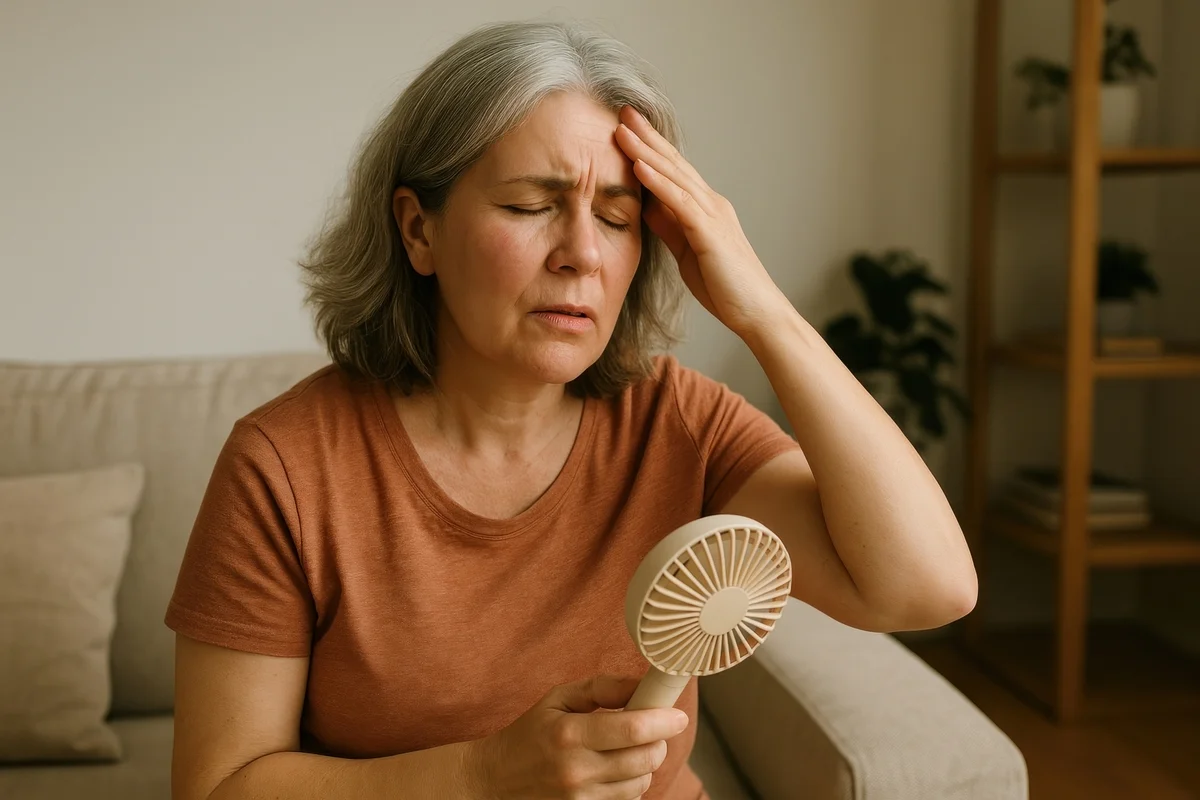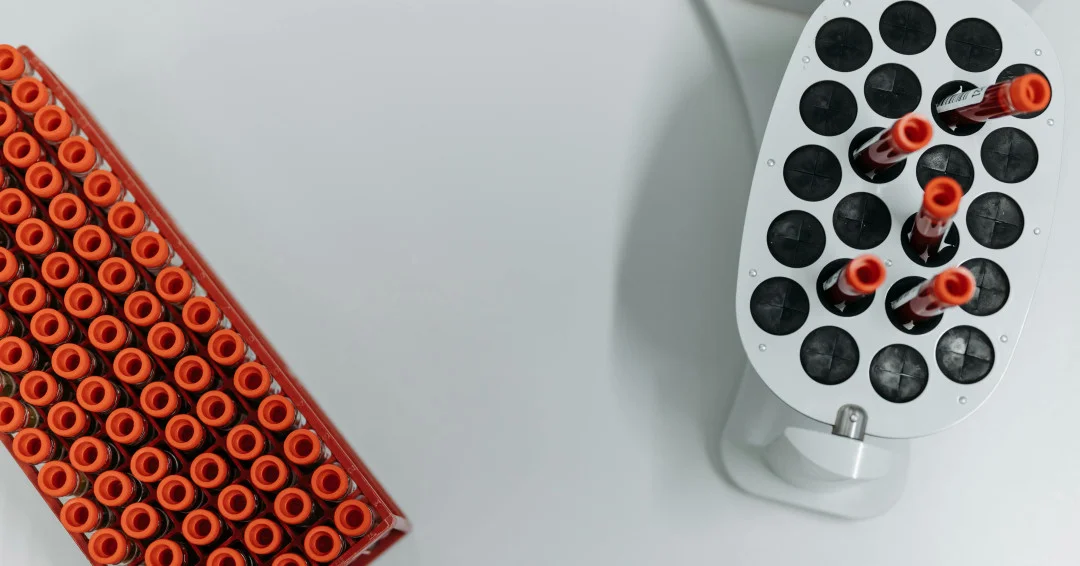Hormone Replacement Therapy For Menopause and Perimenopause
The transitional years leading to and through menopause represent a significant phase in women's health, marked by declining hormone production and often challenging symptoms. Bioidentical hormone replacement therapy (BHRT) has emerged as a modern, effective treatment approach that uses hormones structurally identical to those naturally produced by the body. Unlike synthetic hormones that merely mimic natural hormone function, bioidentical hormones are derived from plant sources and molecularly match human hormones, offering women a personalized path to symptom relief and restored vitality during this pivotal life stage.
Understanding the distinct phases of perimenopause and menopause, along with the benefits and considerations of BHRT, empowers women to make informed decisions about managing their hormonal health. Hormones control every aspect of body function , from temperature regulation to metabolism to sleep cycles, making hormonal balance crucial for overall well-being.
Symptoms of perimenopause
Perimenopause, the transitional period leading up to menopause, typically begins in the late forties or early fifties but can start as many as 15 years before menopause. During this phase, progesterone levels drop faster than estrogen levels, creating an imbalanced ratio that triggers the characteristic symptoms many women find confusing and frustrating.

The most noticeable changes often involve menstrual irregularities, including cycles that become longer or shorter than usual, heavier or lighter bleeding, skipped periods, and spotting between cycles. These unpredictable patterns can persist for several years as the body gradually transitions toward menopause.
Vasomotor symptoms become increasingly common, with hot flashes affecting 75-85% of women during perimenopause. These sudden feelings of intense heat in the face, neck, and chest are often accompanied by night sweats that disrupt sleep quality and contribute to chronic fatigue.
Physical symptoms extend far beyond menstrual changes and hot flashes. Women frequently experience weight gain particularly around the midsection, sleep disturbances, joint pain and muscle aches, tender breasts, and vaginal dryness. Hair may become thinner and more brittle, while skin begins losing its elasticity.
The cognitive and emotional impacts of perimenopause can be equally challenging. Brain fog and memory problems become noticeable, along with difficulty concentrating on tasks that were once routine. Mood swings, irritability, anxiety, and depression affect approximately 40% of perimenopausal women. Many also experience decreased libido and diminished interest in activities they previously enjoyed.
Additional symptoms may include headaches, digestive issues, bloating, and worsening of existing conditions like fibroids. The combination of physical discomfort and emotional challenges often leaves women feeling like their bodies have betrayed them.
Symptoms of menopause
Menopause is officially diagnosed after 12 consecutive months without menstruation, occurring at an average age of 51-52. While some symptoms overlap with perimenopause, menopause symptoms tend to be more intense and long-lasting, potentially continuing for years after periods cease.
Hot flashes remain the hallmark symptom, experienced by approximately 75% of menopausal women and lasting an average of 7-14 years. These episodes can range from mild warmth to intense heat that disrupts daily activities and sleep. Cold flashes or sudden chills may also occur.

Urogenital symptoms become particularly problematic during menopause due to severely diminished estrogen levels. Vaginal dryness and atrophy make sexual intercourse painful, while decreased vaginal elasticity affects comfort and function. Urinary tract infections become more frequent, and many women develop stress or urge incontinence that impacts daily activities.
Sleep disturbances intensify during menopause, with insomnia becoming a persistent issue rather than an occasional problem. Weight gain accelerates as metabolism slows, and women often struggle to maintain their previous body composition despite consistent diet and exercise habits.
Psychological symptoms can be severe, including mood changes, depression, anxiety, and panic attacks. Memory problems become more pronounced, with many women reporting difficulty with word recall and cognitive decline that affects work performance and daily functioning.
Long-term health risks also emerge during menopause, including increased cardiovascular disease risk, accelerated bone loss leading to osteoporosis, higher risk of Type 2 diabetes, and elevated dementia risk. These concerns underscore the importance of addressing hormonal imbalances proactively.
Benefits of bioidentical hormone replacement therapy for menopause and perimenopause
Bioidentical hormone replacement therapy offers significant advantages for managing menopausal symptoms while supporting long-term health. BHRT uses hormones identical in molecular structure to those produced by the ovaries, including estradiol and progesterone. Because the body cannot distinguish between these pharmacy-derived hormones and naturally produced ones, BHRT may offer superior compatibility compared to synthetic alternatives.
The symptom relief benefits are comprehensive and often dramatic. Hot flashes and night sweats typically decrease significantly within weeks of starting treatment, leading to improved sleep quality and restored energy levels. Vaginal health improves as lubrication returns and tissue elasticity increases, making sexual activity comfortable again and reducing urinary tract infection risk.
Cognitive benefits include enhanced memory, improved concentration, and clearing of brain fog that plagued many women during the transition. Mood stability returns as hormonal fluctuations diminish, reducing anxiety and depression while restoring confidence and motivation.

Physical health benefits extend far beyond symptom relief. BHRT helps maintain bone density, reducing osteoporosis risk and preventing fractures. When started within 10 years of menopause, hormone therapy supports cardiovascular health by maintaining healthy cholesterol levels and arterial function. Women often experience improved metabolism, making weight management more achievable.
Skin health improves with increased thickness, hydration, and elasticity, while lean muscle mass preservation helps maintain strength and body tone. Joint pain and stiffness often diminish, improving mobility and quality of life.
Sexual health restoration represents another significant benefit, with libido returning alongside improved vaginal lubrication and enhanced sexual satisfaction. Many women report feeling like themselves again for the first time in years.
BHRT can be delivered through various methods including oral tablets, transdermal patches, topical creams, and sublingual preparations, allowing for individualized treatment approaches based on patient preferences and medical considerations.
Risks of hormone replacement therapy
While BHRT offers substantial benefits, it carries similar risks to traditional hormone replacement therapy that require careful consideration.
Cardiovascular risks include increased blood clot risk (venous thromboembolism) and elevated stroke risk, particularly with oral estrogen preparations. Heart disease risk may increase if hormone therapy is initiated more than 10 years after menopause or after age 60.
Cancer risks represent serious concerns, particularly increased breast cancer risk with combined estrogen-progesterone therapy and endometrial cancer risk with estrogen-only therapy in women with intact uteri. Long-term use may also slightly increase ovarian cancer risk.
Other established risks include gallbladder disease, liver problems, and dementia risk if therapy is started after age 65. Common side effects during treatment initiation include breast tenderness, bloating, weight gain, headaches, mood changes, nausea, and irregular vaginal bleeding.
Certain conditions contraindicate hormone therapy entirely, including history of breast, ovarian, or endometrial cancer, blood clotting disorders, untreated high blood pressure, active liver disease, and unexplained vaginal bleeding.
Testing and monitoring hormone replacement therapy
Comprehensive testing and monitoring ensures safe, effective hormone replacement therapy. Individualized assessments are recommended using appropriate hormone testing to customize dosing to specific patient needs, recognizing that individual responses vary significantly.
Initial evaluation involves detailed symptom assessment, complete medical history, physical examination, and comprehensive laboratory testing. Blood testing remains the gold standard, measuring estradiol, progesterone, thyroid hormones, and more. These tests provide reliable baseline measurements and guide initial dosing decisions.

Ongoing monitoring involves regular clinical assessments including symptom tracking, physical examinations, breast and pelvic exams, blood pressure monitoring, and weight assessment. Laboratory follow-up includes hormone level monitoring, liver function tests, lipid profiles, and complete blood counts.
Professional oversight remains essential throughout treatment. Women should work with licensed practitioners experienced in hormone therapy and maintain regular communication with their healthcare provider. The goal is achieving symptom relief using the lowest effective dose for the shortest duration necessary while monitoring for both benefits and potential adverse effects.
Regular mammography and cervical screening continue as appropriate for age and risk factors, ensuring comprehensive women's health care during hormone replacement therapy. With proper testing, monitoring, and professional supervision, BHRT can provide significant symptom relief and quality of life improvements for women navigating menopause.
If you want to learn more about treatment options for perimenopause and menopause symptoms, schedule a free consultation so we can talk about appropriate lab testing and follow-up to restore your hormones to optimal levels to look and feel your absolute best.
